By Jake Westrich, Team Leader
So for our final hitch in the Oregon Wilderness, we went to work on trails near Bonny Lakes in the Eagle Cap Wilderness. We had been running out of gas on Day 6 of our previous 10-day hitches, so I decided to split this last one into two 5-day ones. But for the sake of this post, I’ll lump them together as Hitch 3.
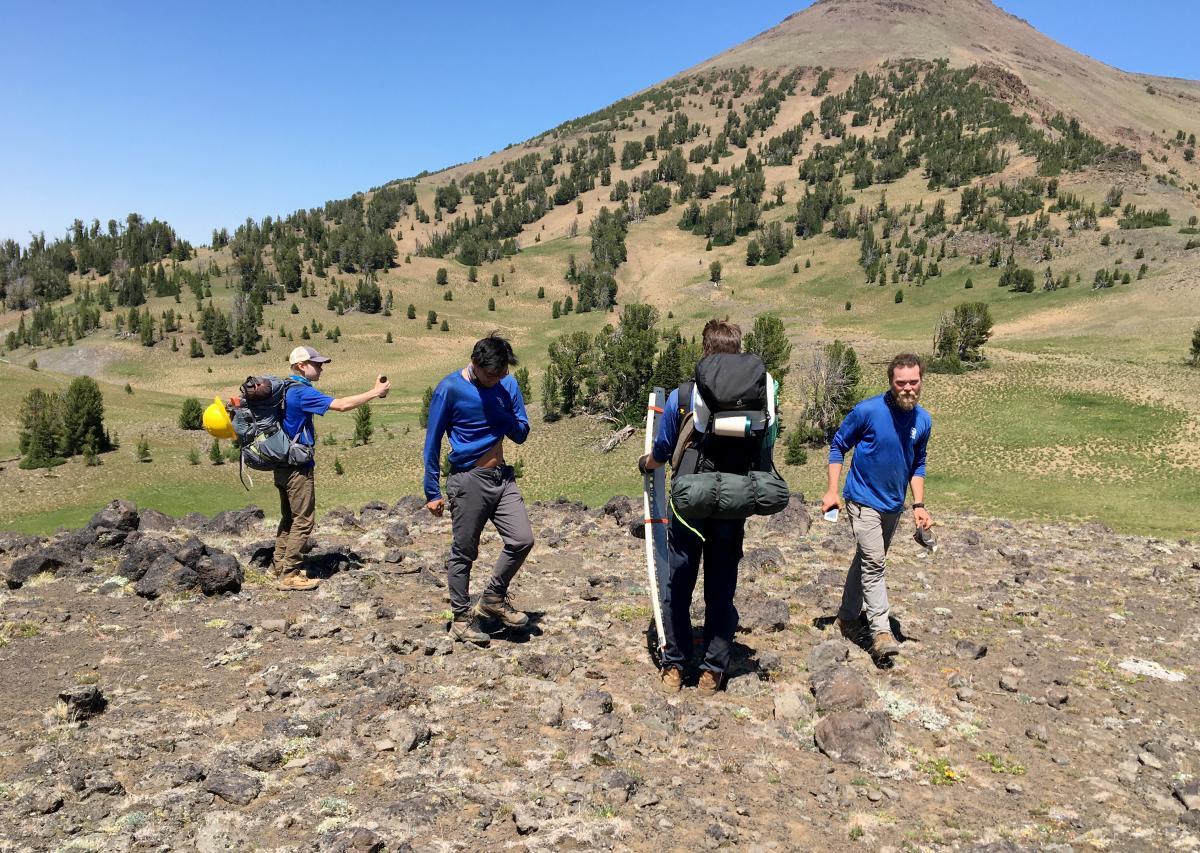
Our first sortie took place from 7/5-7/9, and our second one from 7/12-7/16, and both saw a different variety of tasks done. We covered USFS trails 1819, 1814, and 1802.
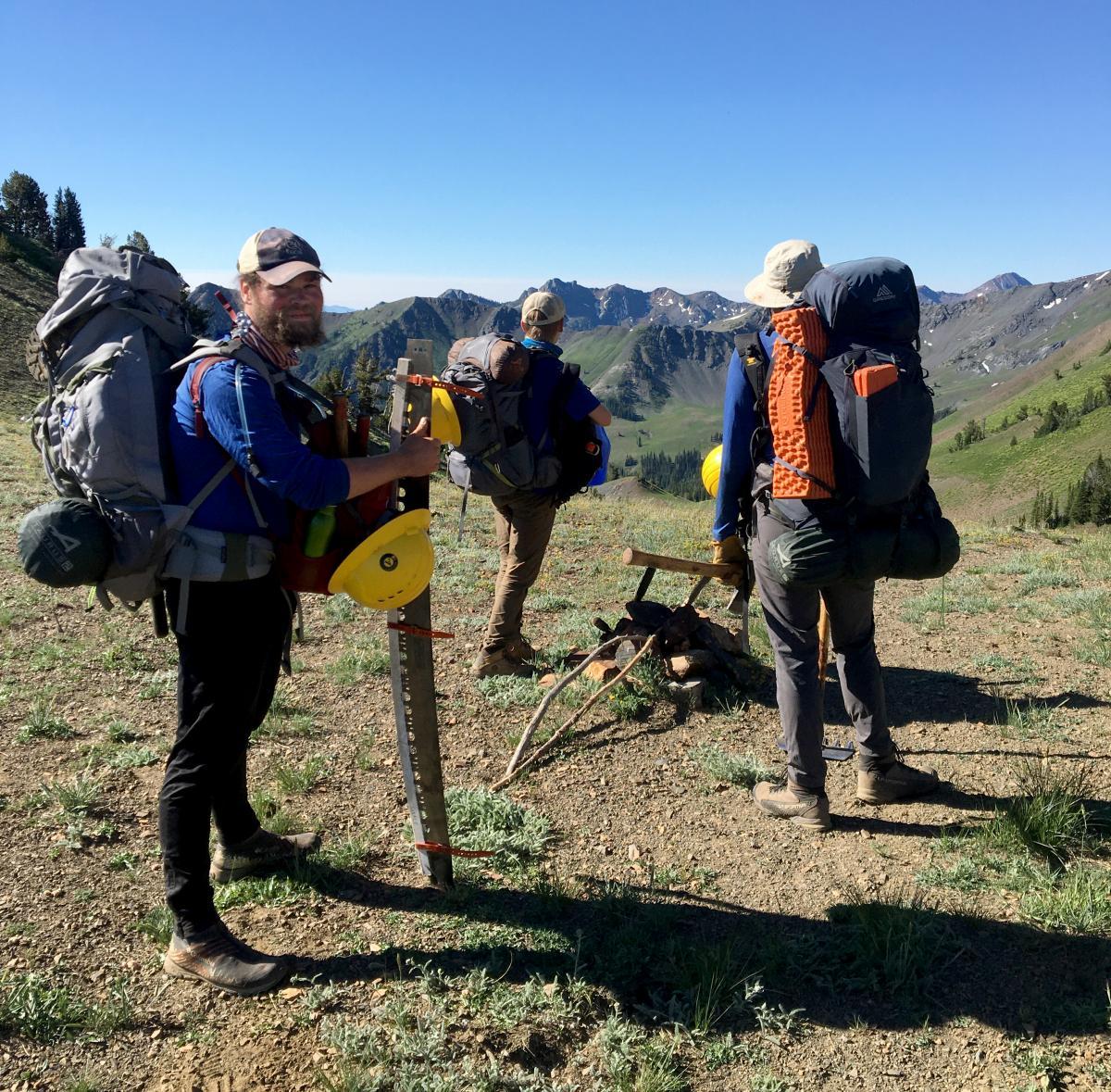
The main goal for our first outing was trail clearing. We brought out our favorite crosscut saw and selected brushing tools from our trailer armory. We moved camp every night as we brushed the trail, which meant we ended up doing our work with all our supplies and gear on our backs.
For crosscutting and sections that needed lots of attention, backpacks could be set down, thankfully. We removed 29 downed trees, brushed well, and returned to Dusty (our truck). In all, we cleared over 13 miles of trail and ate restaurant food knowing we’d done good work.
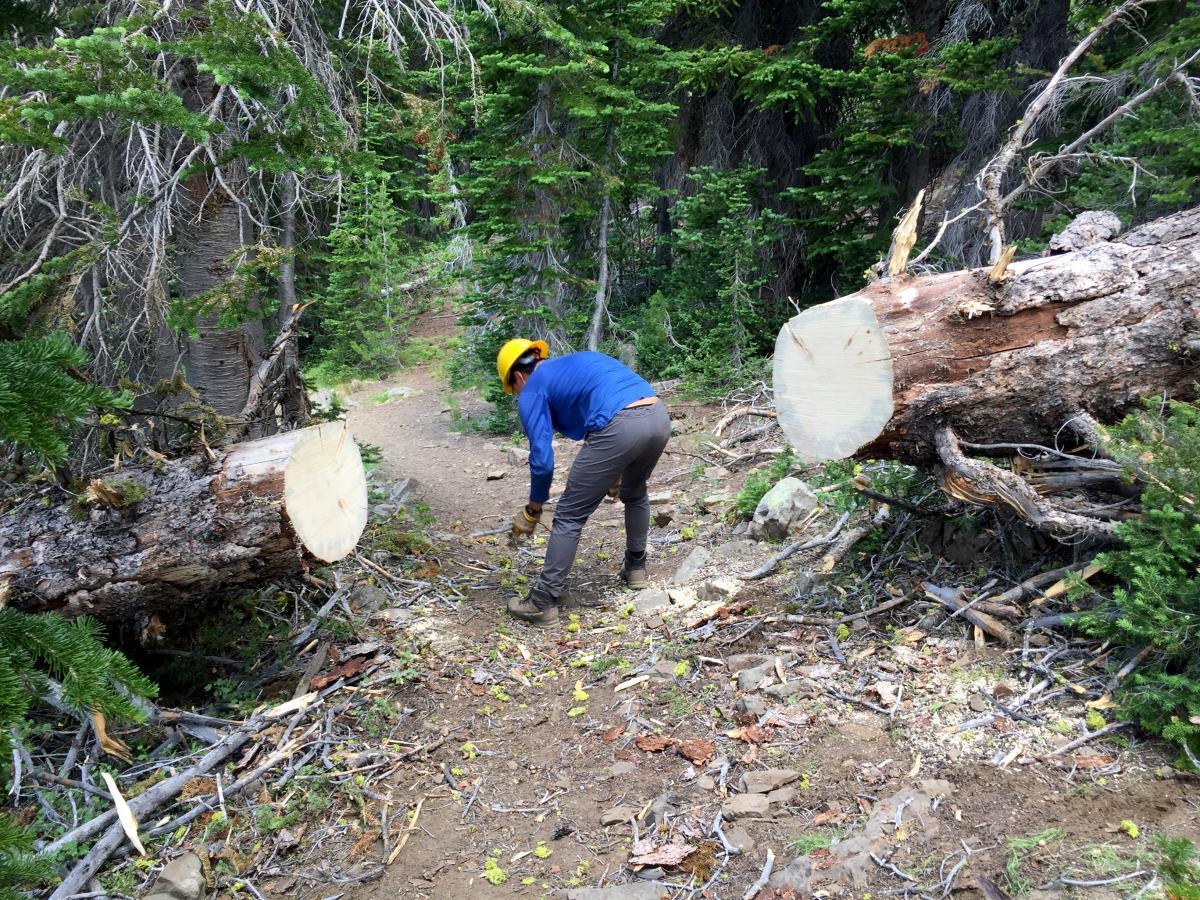
For the second time out, we were tasked with trail retreading and repairs. Unlike the first edition, we left the crosscut at the ranch, camped at the same location each night, and enjoyed many fewer mosquitos.
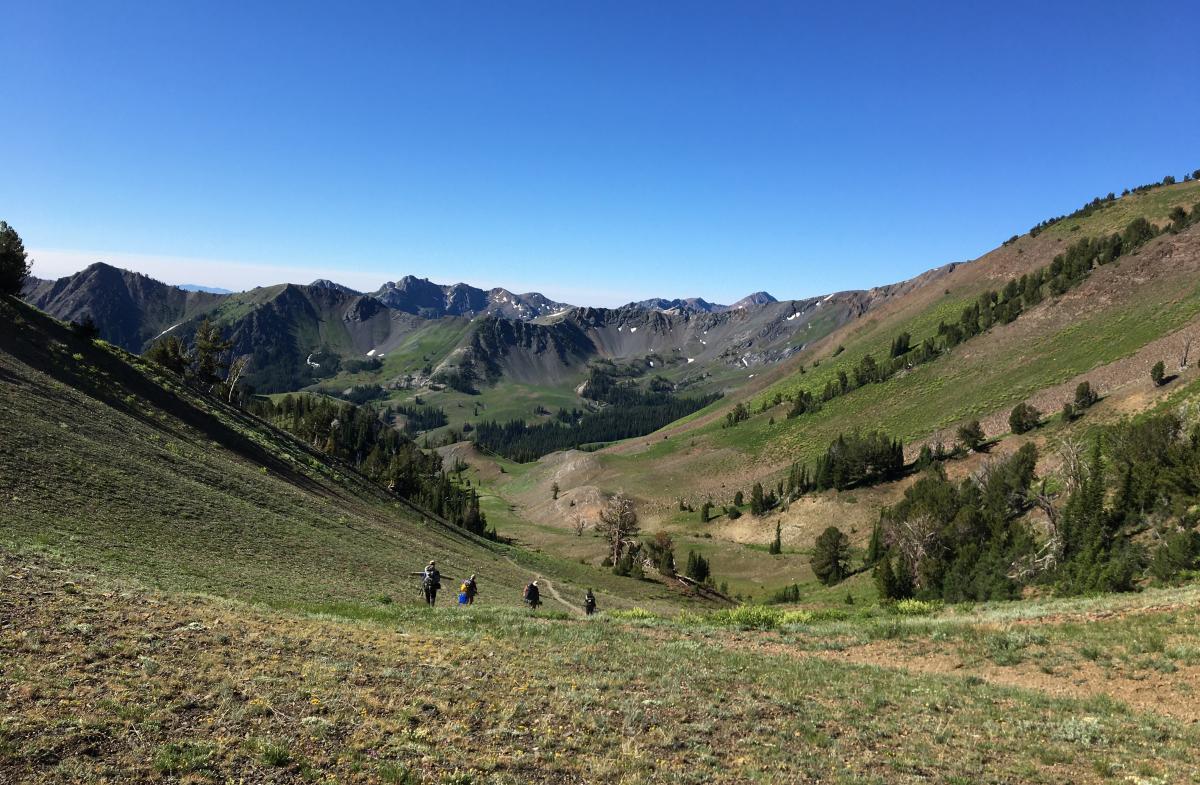
I was kidding about the mosquitos.
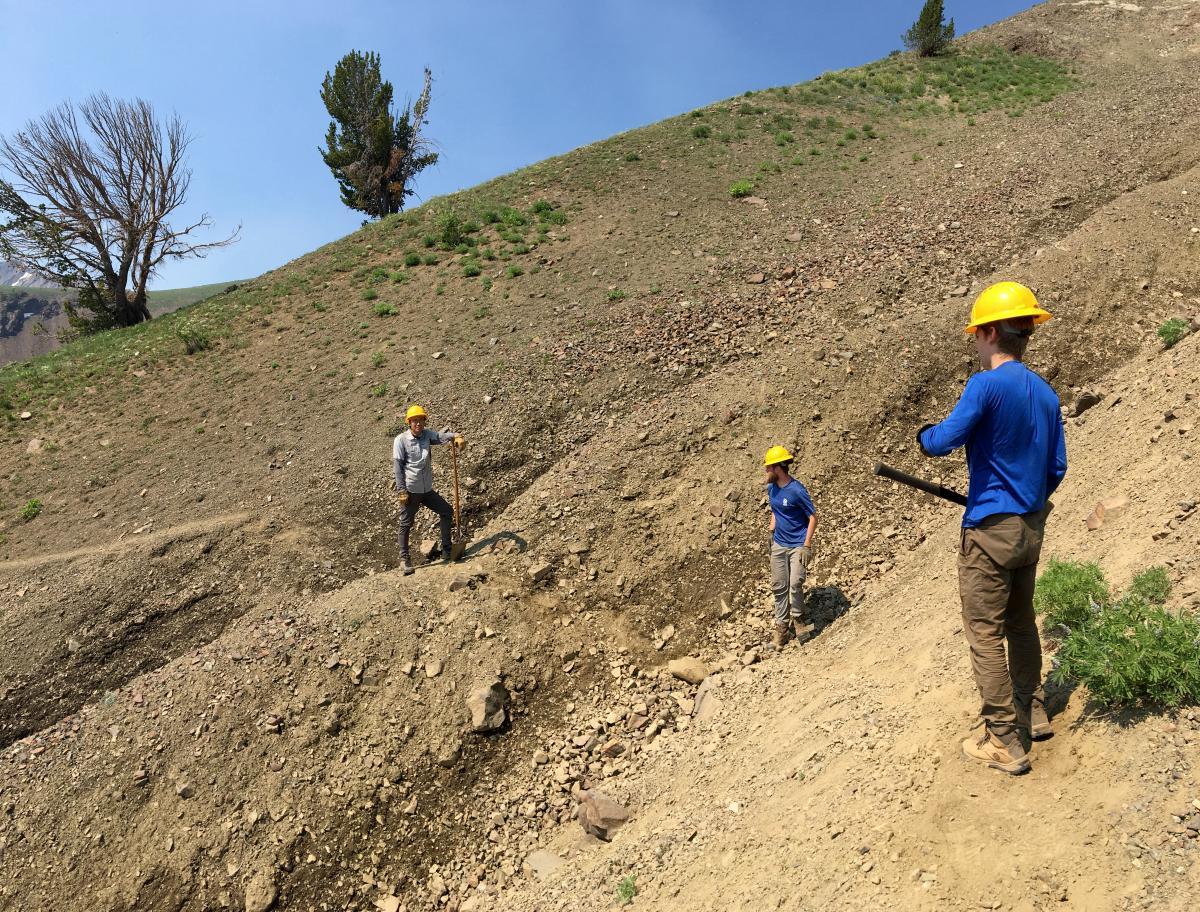
Our main repair project was up on Polaris Pass, where we spent our first day. There was a section of trail on a hillslope that had been carved away completely by ice melt. For the rest of the week, we retreaded other sections of trail and did some brushing where we could.
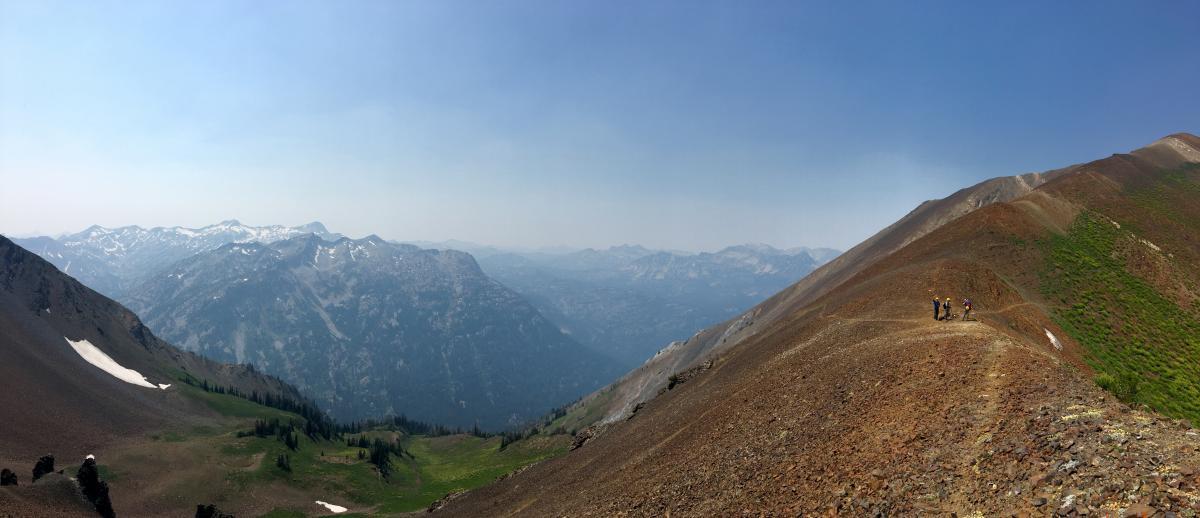
We went up three passes: Tenderfoot Pass, Polaris Pass, and Dollar Pass, with Polaris at 8,900 feet. The guys told me this hitch had the best views out of all of them. I really can’t decide though – this whole landscape just rocks.
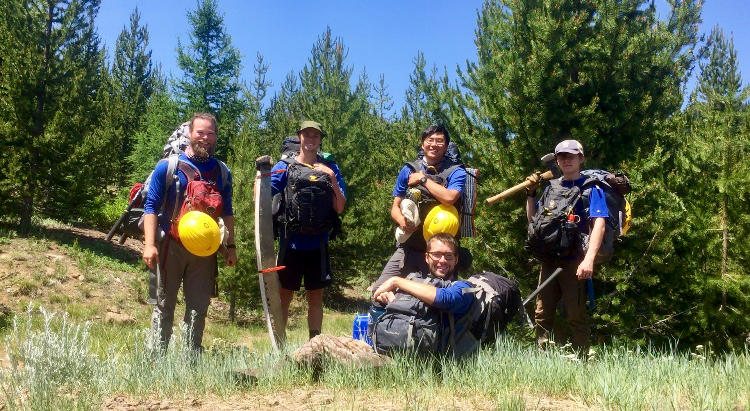
We’re in Washington now. Next stop: Mount Rainier!
Read more about the SCA Roving Trail Team’s adventures at thesca.org/rove.